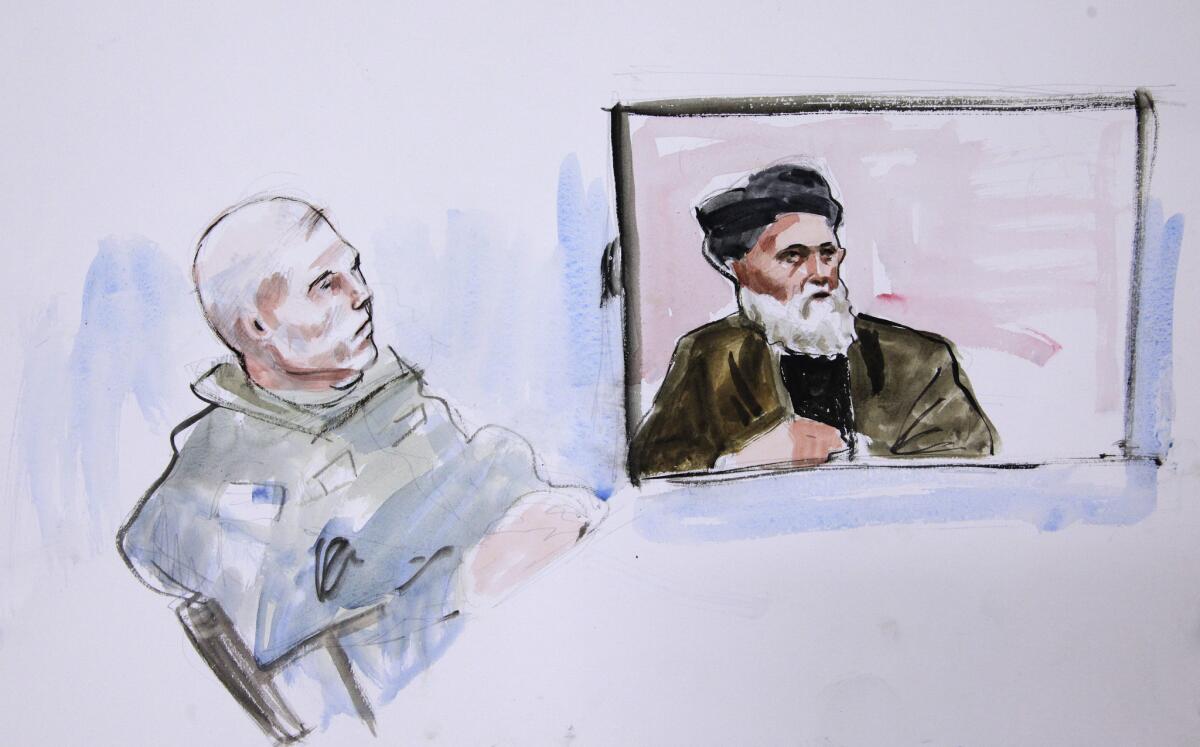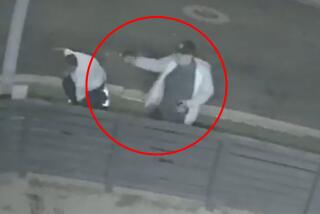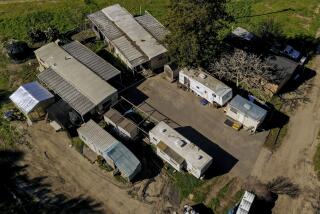Afghan massacre: Farmer says U.S. gunman ‘just started shooting me’

JOINT BASE LEWIS-McCHORD, Wash. — First, there were dogs barking in the middle of the night. Then, two or three gunshots from the housing compound next door. Haji Mohammed Naim, a farmer from the southern Afghanistan village of Alkozai, awoke with a start.
Then came knocks on the door from terrified neighbors, fleeing what they said was a gunman wearing U.S. military gear.
The gunman wasn’t far behind. All Naim could see was the blinding headlamp strapped around his forehead as he moved over a wall from the compound next door.
“I didn’t recognize him. He was an American. I just saw the light on his head,” Naim testified early Saturday at a military hearing for Staff Sgt. Robert Bales, accused of murder in a five-hour shooting spree in two Afghan villages in March.
The Article 32 hearing in a courtroom south of Seattle, under way since Monday, will determine whether Bales is held for a general court martial. Bales’ lawyers have said the sergeant was suffering from crippling stress from his many deployments but have not asserted an affirmative defense.
“I was standing here, and he was standing there,” Naim said, indicating a space as close as the water bottle on the table in front of him. “And he just started shooting me.”
“Did he say anything before he shot you?” a military prosecutor asked.
“I don’t remember, but my son told me that he … heard me talking with him, [saying] ‘What are you doing? What are you doing?’” Naim said. “He didn’t say anything to me. When he came, he stood right here, and he just started shooting at me.”
He forgot most of what happened after that, Naim said, except for one thing: “He shot the children.”
The testimony by live video link from Afghanistan marked the first opportunity for victims of the shootings, which left 16 people dead and six injured, to publicly tell their stories in a military courtroom as Bales, sitting in a courtroom on the other side of the world, watched intently.
The elders dressed in traditional Afghan robes and turbans; Naim’s 15-year-old son, Quadratullah, wore an embroidered cap as he calmly related through an interpreter the events of the night that has come to be called the Kandahar massacre.
“We were all in one room, and then he came to that room. … All the children were running,” Quadratullah said. I placed most of the kids [aside] and said, ‘We are children! We are children!’ And he shot one of the kids.”
One of Naim’s other sons, Sadiquallah, was shot in the ear, and Naim’s daughter, Parmena, also was shot. A boy who had fled from next door, Rafiullah, was shot in the thigh. Rafiullah’s sister Zardana suffered a serious gunshot wound to the head.
All of the witnesses called Friday night and Saturday morning — in an unusual late-night hearing to accommodate the 12 1/2-hour time difference with Afghanistan — testified that there was only one gunman.
“How many Americans did you see?” the military prosecutor asked.
“I saw one,” said Quadratullah, holding a single finger up.
“One,” said Sadiquallah.
Earlier, Kandahar resident Khamal Adin told of being called early on the morning of the shootings to the home of his cousin, Haji Mohammed Wazir, where 11 people, including most of Wazir’s family, had been shot to death.
He described a grisly scene of bodies, many of them naked, burned in a pile; of women and children who had been shot directly in the head; of Nabiyah, less than 2, who it appeared was not shot. “It seems like she was just brought alive from her bed and put on fire,” Adin testified.
Two of the children, 4-year-old Fareeda, and 3-year-old Palwasha, had boot marks on their faces. “It appears she was kicked, because I saw some shoe mark on her face,” Adin said of Fareeda. The other child, he said, had such marks on both her head and the rest of her body.
The hearing officer thanked him at the conclusion of his testimony, and Adin nodded gravely. “My request is to get justice,” he said.
ALSO:
Guards testify in Afghanistan murder case
Robert Bales case: Army investigators were delayed three weeks
New Yorkers in long lines ask: Where’s the gas?
Folow @kimmurphy on Twitter
More to Read
Sign up for Essential California
The most important California stories and recommendations in your inbox every morning.
You may occasionally receive promotional content from the Los Angeles Times.










